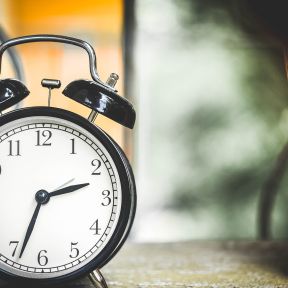
Hypomania
Hypomania is a state of heightened or irritable mood and unusually increased energy or activity that is similar to but less intense than mania. A hypomanic episode is a distinct period of time in which these marked changes from a person’s baseline mood and energy are apparent.

A hypomanic episode is defined by the DSM-5 as lasting four or more days in a row, for most of the day, and involving several other symptoms in addition to changes in mood and activity. Among those symptoms are a spike in self-esteem or grandiosity, a lowered inclination to sleep, greater talkativeness, and increased engagement in potentially hazardous activities such as excessive spending or risky sexual behavior.
Unlike a manic episode, however, a hypomanic episode does not necessarily significantly disrupt a person’s work or social life and does not involve psychotic delusions or hallucinations.
Hypomania is a feature of some mood disorders, namely bipolar disorder and cyclothymic disorder, and those who experience symptoms of hypomania often also go through separate periods of depression.
Signs of hypomania include:
• Sudden confidence and assertiveness
• Increased energy
• More time spent on activities and/or unrealistic activities
• Reduced need for sleep
• Racing thoughts
• Distractibility and irritability
• Talkativeness
There are several causes and risk factors for hypomania. People may be genetically predisposed to the condition. Drugs and alcohol can put people at risk, as can stress, life transitions, changes in sleep patterns, changes in season, certain prescription medications (antidepressants, steroids), and certain medical conditions (thyroid disease, seizures, multiple sclerosis).
There are three main forms of Bipolar Disorder:
• Bipolar I: To be diagnosed with this disorder, a child or adult must have a single episode of mania, which may be preceded by or followed by an episode of depression. This is the most severe form of bipolar disorder and sometimes requires hospitalization.
• Bipolar II: Sometimes called "soft bipolar," bipolar II involves hypomania. To be diagnosed with this disorder, a person has to have had an episode of hypomania and an episode of depression.
• Cyclothymia: People with cyclothymia experience symptoms of hypomania and symptoms of mild depression. Episodes of cyclothymia tend to be shorter but are present for at least two years.
Hypomania highlights the fuzzy line between normal positive experiences and patterns of variation that require treatment. People often describe hypomania as a state where they feel, and sometimes objectively are, more productive and creative than usual. Hypomania, therefore, is similar to states people might characterize as “hyper”—passionate love, relief after final exams, or euphoria from a beach vacation.
The DSM handles this distinction by stating that on one hand, hypomania must be out of character for the person, with changes observable by others, but on the other hand, hypomania must not impair functioning; loved ones may notice the change, but it’s not getting the person into trouble.

For someone experiencing a stretch of hypomania, a burst of energy, rush of ideas, or interest in achieving goals may add up to a generally positive experience. There may be a blurry line between a functional period of hypomanic productivity and a more severe state that indicates professional care is warranted.
Hypomania can, however, involve negative aspects (including irritability) and may increase the possibility of harm resulting from risk-taking behavior. It can also coincide with depressive symptoms.
While not everyone who experiences hypomanic symptoms has a mood disorder, their presence is important to any broader consideration of a person’s mental health history. A hypomanic episode is key to the psychiatric definition of bipolar disorder type II, which also involves major depression, and is associated with a high risk for suicide.
Hypomania can be positive when the symptoms coalesce to produce an extremely goal-oriented and focused individual. Functional people in a hypomanic state are able to keep their goals rational and concise, and they can plan around them accordingly. Freud believed, for instance, that people are fully functional when they retain the ability to do three things: work, play, and love. Hypomania becomes a problem, however, if risky behaviors emerge or if the episode progresses into mania or depression.
Some people with bipolar develop the ability to understand and control hypomania, preventing it from becoming a manic episode. Those who control hypomania explain that they rely on a few key strategies: learning how to assess their state via intensity, awareness, functionality, and comfort, recognizing their state and separating their feelings from their reactions, and taking an inventory of behaviors that adversely affect others.
Even those who can control hypomania believe there is a level of intensity that is impossible to control; full-blown manic episodes can ratchet the level of intensity to disturbed thinking, delusions or hallucinations, days without sleep, and harmful risk-taking such as spending huge sums of money or having an affair or protected sex. A key distinction when identifying if hypomania has gotten out of control is whether those around the person feel comfortable and safe.
Treatment for hypomania depends on the individual and should be tailored to their experience. Medications may include mood stabilizers and antipsychotics. Therapy is often used in conjunction, which can help patients understand the condition, develop coping skills, adhere to their medications, and make helpful lifestyle changes.














